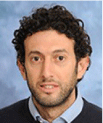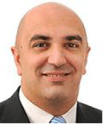Unmanned rotating equipment for normally unattended installations
Alessandro Leto A , Adolfo Agresta B * , David Bartolini A , Gionata Ruggiero C and Daniele Porciani AA Baker Hughes, Florence, Italy.
B Baker Hughes, Perth, WA, Australia.
C Baker Hughes, Kuala Lumpur, Malaysia.
The APPEA Journal 63 S204-S208 https://doi.org/10.1071/AJ22101
Accepted: 15 March 2023 Published: 11 May 2023
© 2023 The Author(s) (or their employer(s)). Published by CSIRO Publishing on behalf of APPEA.
Abstract
Offshore oil and gas operators are facing unprecedented challenges due to the need to reduce operational expenditure while operating in harsh/remote environments with an ever-increasing focus on safety and carbon footprint reduction. Technological innovation, especially around digitalisation and control, is a game changer that gives customers the opportunity to adopt low-manned or totally unmanned solutions without compromising cybersecurity standards. According to some operators, every employee removed from an offshore platform can result in approximately US$1 M savings per year. Additionally, mobilisation of personnel offshore is very risky. For these reasons, de-manning is a solution both for new projects and for units in operation. Developing unmanned trains for power generation and compression requires the introduction of different solutions: hardware and control system modifications; surveillance systems and digital services for advanced degradation monitoring. Systems should be designed considering three main development streams: (1) fully automatic start-up/shut-down, (2) no routine maintenance during operation and (3) no on-condition maintenance. This paper describes the Unmanned Rotating Equipment Package Solution developed by Baker Hughes in collaboration with primary offshore operators. We demonstrate a high technology readiness level; potential fast deployment at industrial scale and identify no main technological showstoppers. Maintenance activities requiring personnel on site can be carried out during campaign visits, currently scheduled every 6 months with the target to achieve one visit per year. In addition to benefits due to reduction or remote execution of on-site tasks, unmanning can bring further advantages to a project such as increased safety, lower carbon footprint and reduced total cost of ownership.
Keywords: automatic start-up/shut-down, carbon footprint, centrifugal compressors, condition maintenance, control, de-manned, digital services, digitalisation, gas turbines, industrial, maintenance, monitoring, normal unattended facility, offshore, Oil & Gas, on-condition, operation, OPEX, power generation, remote environment, rotating equipment, surveillance system, technology, unmanned.

Alessandro Leto works for Baker Hughes as Product Manager for digital services and unmanned operation, based in Florence, Italy. He has 15+ years of experience in service engineering on rotating equipment, supporting energy and oil and gas customers, and pioneering the adoption of digital solutions. A Digital Transformation and Artificial Intelligence enthusiast, he moved to product management 5 years ago to drive company strategy on digital engineering services and introduce new solutions to operate rotating equipment in unattended facilities. Alessandro is a graduate of the University of Palermo (Italy), where he received a Bachelor of Mechanical Engineering. |

Adolfo Agresta works for Baker Hughes as Product Service Engineering Manager for Asia Pacific, based in Perth, Australia. He has 15 years of experience in delivering engineering projects across energy, and he is responsible for technical coordination of main issues resolution, leading a multidisciplinary team with a keen focus on Digital Transformation, Analytics Development and Artificial Intelligence promotion within organisations. Deft at training teams on Lean Six Sigma and quality tools, he is a team player in the energy transition, hydrogen, hybrid solution and carbon capture initiatives. Adolfo is a graduate of the University of Pisa (Italy), where he received a Bachelor of Aerospace Engineering. |

David Bartolini is a Systems Engineer for Baker Hughes IET in Florence, Italy. He has over 15 years of experience in the energy industry, covering technical and managerial roles, from factory and field testing to rotating equipment auxiliary systems design and start-up, he is now primarily involved in new product development. David holds a Bachelor’s degree in Industrial Engineering from the University of Florence and is INCOSE CSEP certified. |

Gionata Ruggiero works for Baker Hughes as Asia Pacific Service Technology Leader and he is currently based in Kuala Lumpur. In his 20+ years of experience he has covered several positions in the engineering organisation: Product expert; Project engineering serving different NOC (ENI, Reliance) and IOC (Conoco Philips, BP); and Monitoring and Diagnostic work in different countries (Florence, Nigeria, Angola and India). He is known as a customer-focussed engineer who is able to identify solutions for customers, and a pioneer of how to inject a mix of digital and product expertise. With his multidisciplinary team, Gionata is responsible for engineering support from the installation and commissioning phase until the end of the life cycle. Gionata holds a Bachelor of Industrial Engineering and he is continuously studying digital transformation and climate change. |

Daniele Porciani works for Baker Hughes and is responsible within the Turbomachinery & Process Solutions Service team to expand outcome-based services – digital services, knowledge services and long-term solutions for critical turbomachinery equipment and beyond with a focus on innovative and energy transition-related service models. Daniele holds an Executive MBA from SDA L. Bocconi Business School, Milan and a Masters Degree in Telecommunications Engineering from the University of Pisa. |


